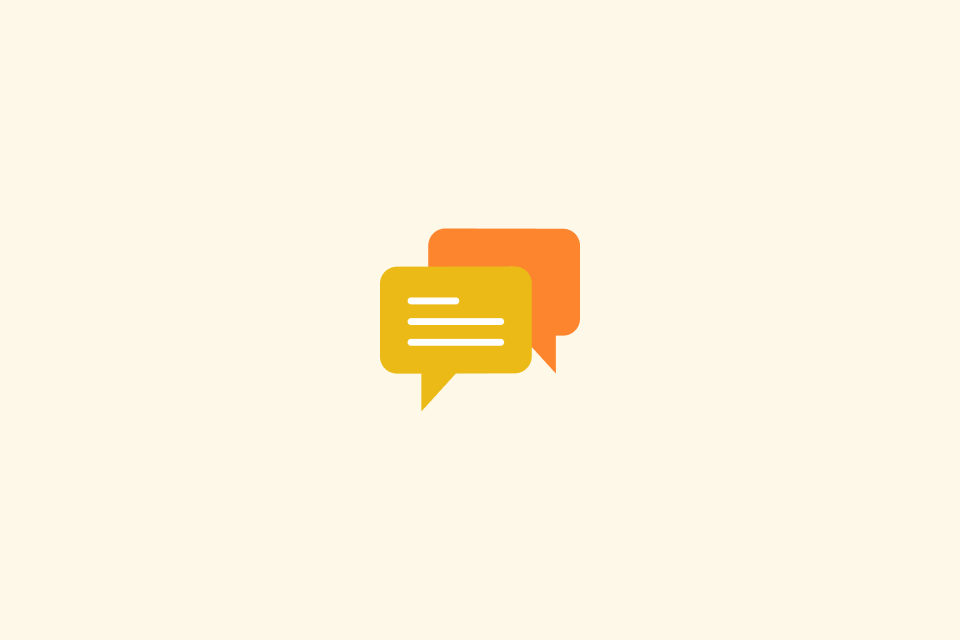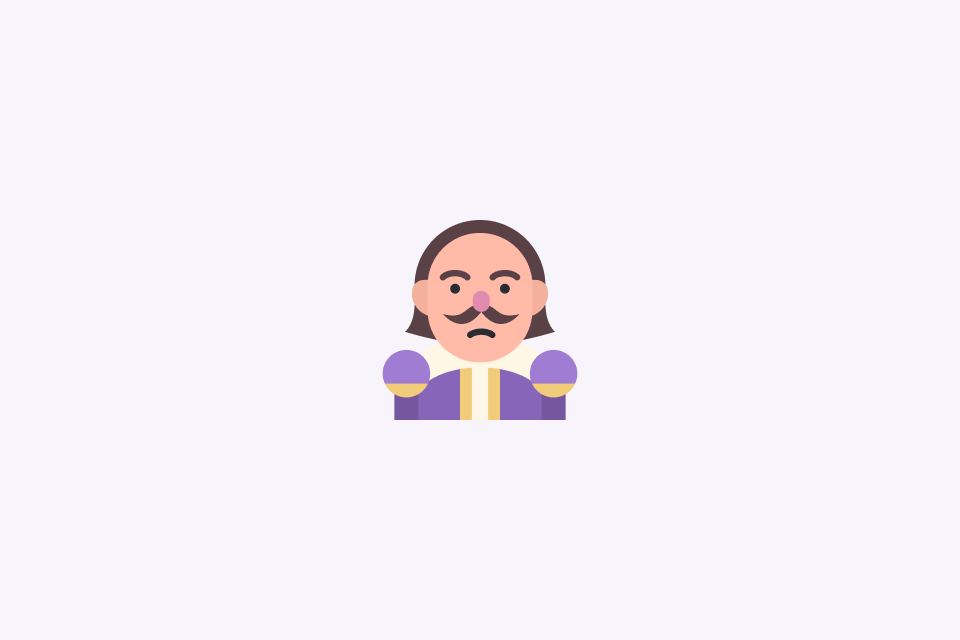100 משפטים יומיים באנגלית לשיחות יומיומיות

TABLE OF CONTENTS
בין אם אתה מחמם שיחה קטנה או מבקש עזרה תוך כדי תנועה, 100 המשפטים האלה מכסים את מה שאתה אומר הכי הרבה בחיים האמיתיים. הם קצרים, טבעיים וקלים להתאמה. השתמש בהם כתרגול דיבור יומי: קרא בקול רם, הקלט את עצמך, והחלף כמה מילים כדי להפוך כל שורה לשלך.
טיפ מקצועי: לטון מנומס, הוסף מרככים כמו “בבקשה”, “האם תוכל”, ו”האם תוכל בבקשה”; לבהירות, אשר פרטים בסוף (”…נכון?”).
ברכות והיכרות
רושם ראשוני חשוב. השתמש בפתיחות הידידותיות האלה כדי להתחיל שיחות, להציג את עצמך וליצור טון מזמין.
- Hi! How’s it going?
- → Pretty good, thanks. You?
- Good morning! How are you?
- → I’m good, thanks for asking.
- Nice to meet you.
- → Nice to meet you too.
- My name is [your name].
- → Nice to meet you, [name].
- Where are you from?
- → I’m from [place].
- What do you do?
- → I’m a [job].
- How have you been?
- → Pretty good, thanks.
- It’s great to see you again.
- → Great to see you too!
שיחה קטנה ומזג אוויר
שיחות מזדמנות בונות קשר. הנושאים הקלים האלה עוזרים לך להתחבר מבלי להיכנס יותר מדי לפרטים אישיים.
- How’s your day going?
- → Not bad, thanks.
- What are you up to today?
- → Just running some errands.
- Is it a busy day?
- → Kind of, yeah.
- Lovely weather today.
- → It really is.
- It’s pretty cold today.
- → Tell me about it.
- Did you watch the game last night?
- → Yeah, it was great!
- How was your weekend?
- → It was nice, thanks.
- Do you have any plans for the weekend?
- → Not yet—maybe just rest.
בקשות מנומסות והצעות
נימוס מחליק אינטראקציות יומיומיות. השתמש בשורות האלה כדי לבקש עזרה או להציע סיוע באופן טבעי.
- Could you please help me with this?
- → Sure, what do you need?
- Would you mind opening the window?
- → Not at all.
- Can I ask you a quick question?
- → Go ahead.
- Could I get a glass of water, please?
- → Of course—one moment.
- Would it be okay if I sit here?
- → Yes, go ahead.
- Do you need a hand?
- → Yes, please. Thanks!
- Let me know if you need anything.
- → Will do, thanks.
- Can I get you anything?
- → I’m good, thanks.
- That would be great, thank you.
- → You’re welcome.
- I would really appreciate your help.
- → Happy to help.
הבהרה ובדיקה
בהירות מונעת אי הבנות. שורות אלו עוזרות לך לאשר פרטים, איות ותזמון בנימוס.
- Sorry, I didn’t catch that.
- → No problem—I’ll repeat it.
- Could you say that again, please?
- → Of course.
- Could you speak a little slower?
- → Absolutely.
- What do you mean by that?
- → I mean…
- How do you spell that?
- → It’s [letters].
- Just to confirm, we meet at 3, right?
- → Yes, 3 p.m.
- → Actually, 3:30.
- Did you mean next Monday?
- → Yes, next Monday.
- → No, I meant this Monday.
- Am I following you correctly?
- → Exactly.
תזמון ותוכניות
תכנון טוב חוסך זמן. השתמש במשפטים אלו כדי למצוא זמן, לאשר לוגיסטיקה ולתאם מחדש בחן.
- Are you free tomorrow afternoon?
- → I am after 3.
- What time works best for you?
- → 10 a.m. works.
- Let’s meet at 3 p.m.
- → Works for me.
- → Could we do 3:30?
- Does Friday work for you?
- → Yes, Friday is good.
- → I’d prefer Thursday.
- Can we reschedule?
- → Sure—what time?
- I’ll get back to you by tomorrow.
- → Thanks—appreciate it.
- I’ll put it on my calendar.
- → Great, thanks.
- Let’s touch base later this week.
- → Sounds good.
- Can we do a quick call?
- → Sure—when?
- Can I take a rain check?
- → Of course.
קניות וכסף
אנגלית של קניות מופיעה בכל מקום. שורות אלו מכסות מחירים, מידות, תשלומים והחזרות.
- How much is this?
- → It’s $25.
- → That one is on sale for $15.
- I’m just looking, thanks.
- → No problem—let me know if you need help.
- Do you have this in a medium?
- → Yes—right this way.
- → Sorry, we’re out of medium.
- Is there a discount on this?
- → It’s 10% off today.
- Can I pay by card?
- → Yes, we take all major cards.
- Could I get a receipt, please?
- → Sure—paper or email?
- Where is the fitting room?
- → It’s at the back.
- Can I return or exchange this?
- → Yes, within 30 days.
אוכל ושירות
מבתי קפה למסעדות, בקשות ברורות מובילות לשירות חלק יותר. השתמש בשורות אלו כדי להזמין, לשאול ולשלם.
- A table for two, please.
- → Right this way.
- → There’s a 10‑minute wait.
- Could we see the menu?
- → Of course—here you go.
- What do you recommend?
- → The salmon is very popular.
- I’ll have the chicken salad, please.
- → Great choice.
- Could we have the check, please?
- → Sure—I’ll bring it right over.
- Can we split the bill?
- → Absolutely.
נסיעות וכיוונים
בזמן תנועה, שאלות תמציתיות מביאות אותך למקום שאתה צריך להיות. השורות הללו עוזרות במסלולים, תזמון וכרטיסים.
- How do I get to the train station?
- → Take the 10 bus two stops.
- Is it within walking distance?
- → Yes—about 15 minutes.
- → It’s a bit far; better take the bus.
- Which bus should I take?
- → Take the 23 toward downtown.
- How long does it take to get there?
- → Around 20 minutes.
- Is this the right platform?
- → Yes, you’re in the right place.
- → No—try platform 3.
- Is it one-way or round-trip?
- → One-way.
- → Round‑trip is cheaper.
- Could you show me on the map?
- → Sure—right here.
- I think I’m lost.
- → No worries—where are you now?
טלפון ואונליין
תקשורת מרחוק דורשת בהירות. השתמש בשורות הללו כדי לתקן בעיות שמע ולתאם קישורים או מסכים.
- May I speak to Sarah, please?
- → Speaking.
- → She’s not available—can I take a message?
- You’re breaking up.
- → I’ll move to a better spot.
- I’ll call you back in a minute.
- → Okay—talk soon.
- Can you hear me okay?
- → Loud and clear.
- I’ll send you the link.
- → Thanks—I’ll check it now.
- I’ll share my screen now.
- → I can see it.
משפטי אנגלית יומיים בעבודה
תקשורת מקצועית דורשת טון שונה, מנומס, ברור ומכוון לפעולה. המשפטים הבאים נפוצים במשרדים או בסביבות עבודה מרחוק והם במיוחד שימושיים לילדים ובני נוער מבוגרים המתכוננים לתקשורת בעולם האמיתי.
- Do you have a minute?
- → Sure—what’s up?
- Could you give me a quick update on the project?
- → We’re on track.
- Let’s kick off the meeting.
- → Sounds good.
- Could you walk us through this?
- → Absolutely—step one is…
- What’s the status on this task?
- → It’s done.
- What’s the deadline?
- → End of day Friday.
- I’ll take care of it.
- → Thank you.
- I’ll follow up after the meeting.
- → Great—thanks.
- Let’s take this offline.
- → Agreed.
- What are the action items?
- → I’ll draft the doc; you’ll review.
דעות והסכמה/אי הסכמה
שיתוף דעות בכבוד שומר על שיחות פרודוקטיביות. השורות הללו עוזרות לך להסכים, לא להסכים ולבקש סיבות מבלי להישמע קשים.
- I think this is a good idea.
- → I agree.
- In my view, we should wait.
- → That’s fair.
- From my perspective, it’s risky.
- → What risk do you see?
- That makes sense.
- → Glad it helps.
- I agree with you.
- → Appreciate that.
- I see your point, but I disagree.
- → That’s okay—tell me more.
- I’m not sure I follow.
- → Let me clarify.
- Could you explain your reasoning?
- → Sure—here’s how I see it.
- Let’s agree to disagree.
- → Works for me.
- I’m open to other ideas.
- → I have a suggestion.
חירום ובעיות
במצבים דחופים או מורכבים, שפה פשוטה וישירה עובדת הכי טוב. שורות אלו עוזרות לך לבקש עזרה ולהסביר בעיות נפוצות במהירות.
- I need help.
- → What happened?
- It’s an emergency.
- → Call 911 now.
- Please call emergency services.
- → I’m calling now.
- I’ve lost my wallet.
- → Where did you last see it?
- I don’t feel well.
- → Do you need a doctor?
- There’s a mistake on the bill.
- → Sorry about that—I’ll fix it.
- My phone isn’t working.
- → Try restarting it.
- Can you call a taxi for me?
- → Sure—I’ll order one now.
איך לתרגל (7 דקות ביום)
בכ-שבע דקות ביום: חזור אחרי עשר שורות (נגן קליפ של דובר ילידי או הקלטה שלך ודבר בסינכרון), החלף מילה או שתיים בכל משפט כדי להפוך אותו לשלך, הקלט את עצמך מדי שבוע כדי לבדוק קצב, הגייה ובהירות, ונסה שלוש שורות בשיחה אמיתית. עקביות מנצחת אינטנסיביות—חזרות יומיות קטנות בונות שטף אמיתי.
הנחיות מהירות (שימוש בכל מקום)
שמור על זה קצר ומנומס—רעיון אחד לכל משפט, בבקשה/תודה כשמתאים. בחר את הטון הנכון: “יכול/היה” רך יותר מ”יכול/יעשה”. אשר את הדברים החיוניים (זמן, תאריך, מקום, מחירים, מספרים, אזורי זמן), הימנע ממילים מעורפלות כמו “זה/זה/זה”, ושאל שאלה אחת בכל פעם.
שקף את הפורמליות של האדם השני. בשיחות או אונליין, אמור מה תעשה לפני שתעשה זאת (למשל, “אני אשתף את המסך שלי עכשיו”). אם אתה נתקע, השתמש בנפילות בטוחות: “תן לי לנסח מחדש,” או “תן לי רגע לבדוק.”
טעויות נפוצות להימנע מהן
מלכודות טיפוסיות כוללות שאלת שתי שאלות בבת אחת (שאל, עצור, ואז עקוב), שימוש יתר ב”מאוד/כך” במקום מילה מדויקת, תרגום ביטויים מילולית, דילוג על אישורים לזמנים/תאריכים ואזורי זמן, והסתמכות רק על “יכול אתה” בבקשות פורמליות—הוסף “בבקשה”, או עבור ל”יכול אתה”.
סיכום והשלבים הבאים
בחרו 5–10 שורות לתרגול יומי, התאימו אותן אישית והשתמשו בהן בשיחות אמיתיות. הקליטו בדיקה שבועית כדי לעקוב אחר בהירות, קצב וביטחון. חזרו על כך מדי חודש: שמרו על מה שאתם משתמשים, הסירו את מה שלא, והוסיפו 20 מועדפים אישיים.


